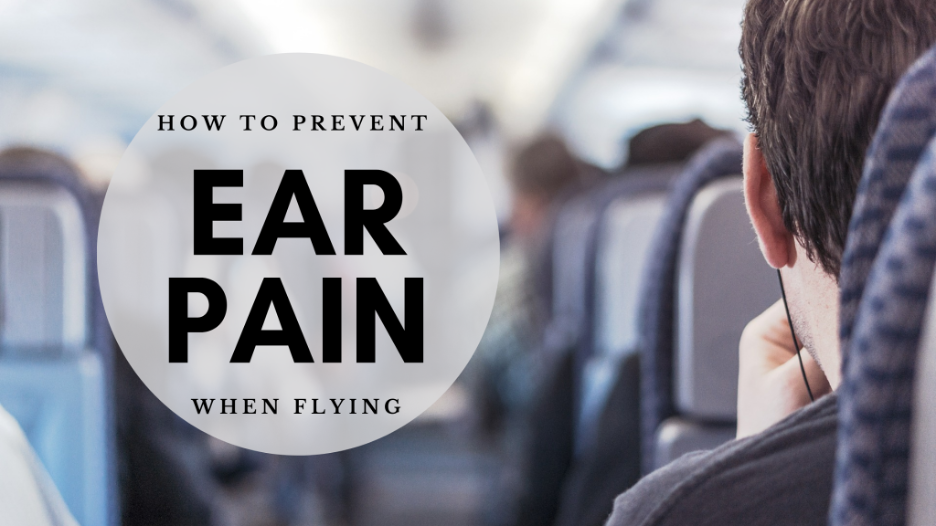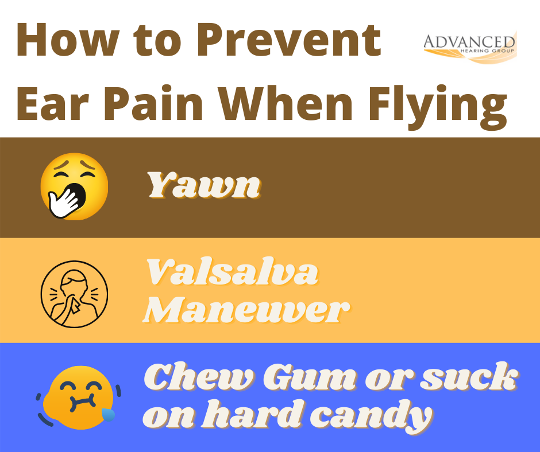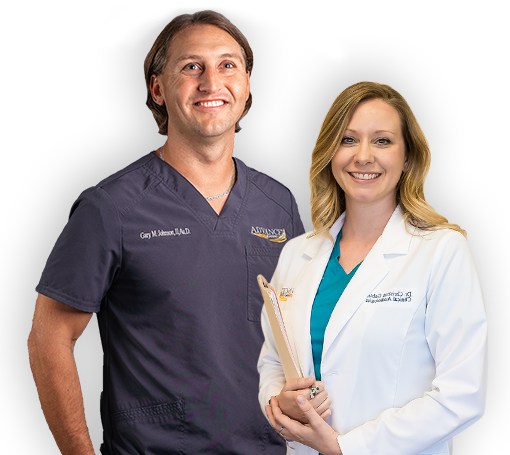
Airplane travel is certainly an easy and convenient way to get from point A to point B. But, what happens when ear pain makes the journey less comfortable? Is there a way to prevent it, or is ear discomfort just a necessary evil of flying? A recent article from Healthy Hearing answers these very questions.
What causes ear pain when flying?
Learning how to solve a problem often starts with understanding its cause. In the case of flying related ear pain, it’s important to have a basic understanding of ear anatomy and physiology.
Under normal circumstances, air pressure within the inner ear and the pressure outside the ear are pretty much the same. With rapid changes in altitude, however, the equilibrium is disturbed. The medical term referring to ear pain caused by this phenomenon is ear barotrauma. In addition to pain, there can also be a change in hearing.
Can ear pain from flying be prevented?
In most cases, the answer to this question is ‘yes’. There are three simple things you can do to help prevent ear pain, or alleviate it should it occur. The basis for all three is utilizing the Eustachian tubes to transport air throughout the ear to equalize pressure.

- Yawn or swallow – When you yawn or swallow, you might hear a popping sound or feel a popping sensation. This is simply an air bubble moving from your nose to the middle ear inside the Eustachian tube. That air is then absorbed into the inner ear and the pressure is equalized. This process may need to be done multiple times while flying in order to offset air pressure changes.
- Valsalva maneuver – This sounds like a complicated term but the process is really quite simple. It starts by filling your mouth with air. Then, close your mouth and nose while gently forcing air out. Your ears will ‘pop’, indicating that the Eustachian tubes are open and ready to do their job.
- Chew gum or suck on hard candy – Ultimately, the only reason this helps is because it stimulates swallowing and the process described in #1 above.
Be sure to avoid causing other ear damage
Most people choose to stay home and change their travel plans if they become sick when they’re scheduled to fly. In addition to protecting the health of your flying companions, doing this can help your own hearing health.
Flying with a severe cold, the flu, or any other illness that causes congestion is not recommended. This is because your Eustachian tubes may be plugged, and doing any of the tips mentioned above are not likely to help. In fact, they can cause further damage in the way of a ruptured eardrum.
Ear pain from flying should resolve quickly, or at least within a few days after your trip. If you continue to experience pain, discomfort, or hearing loss, schedule an appointment with one of our audiologists right away. There may be an underlying issue that needs to be addressed. Your hearing health is too precious to ignore!
Read the full story here.

